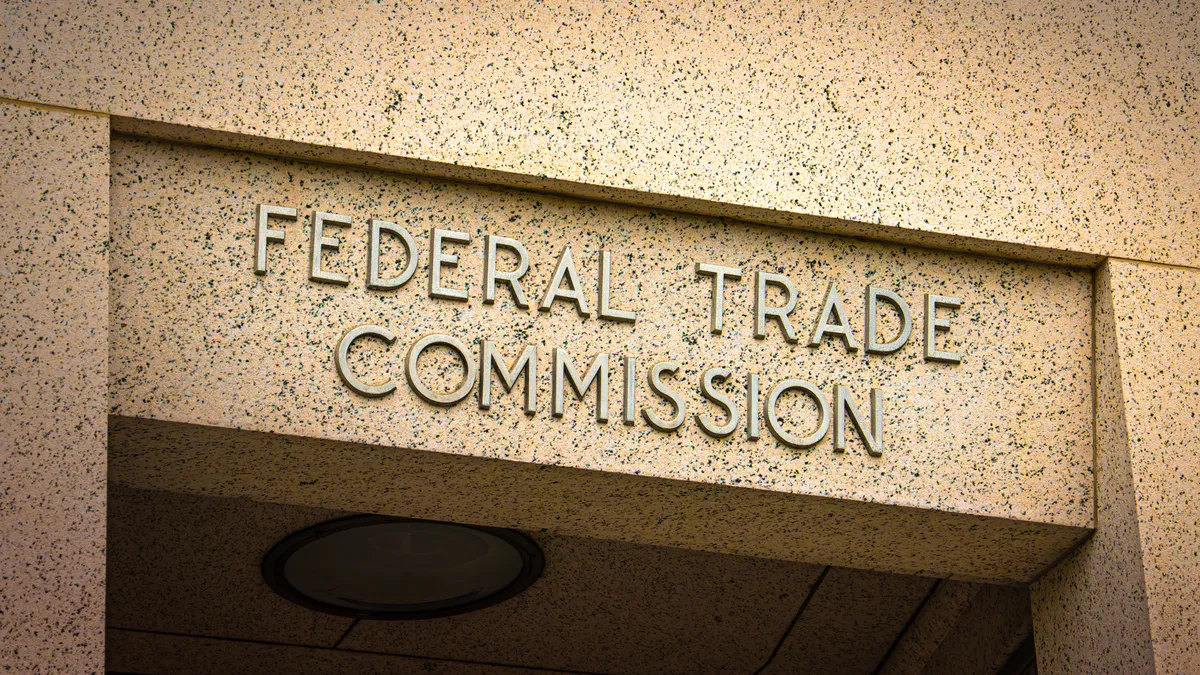Dive Brief:
- The Federal Trade Commission sued fintech Dave on Tuesday for allegedly misleading consumers and luring them to its cash advance application with the promise of obtaining up to $500 in loans, which they failed to receive.
- The FTC said the online platform charged consumers who need financial assistance with undisclosed fees and “tips” without their consent, adding that Dave’s conduct violates the FTC Act and the Restore Online Shoppers’ Confidence Act.
-
“Dave lured in consumers living paycheck-to-paycheck with false claims of big-dollar advances, then reached into their pockets to give itself a so-called ‘tip,’” Samuel Levine, director of the FTC’s Bureau of Consumer Protection, said in a statement Tuesday. “Whether the products are called cash advances, payday loans, or something else, the FTC will take action to protect consumers from unauthorized charges and deceptive claims.”
Dive Insight:
The FTC’s action comes close to a similar lawsuit by the Consumer Financial Protection Bureau against Los Angeles-based fintech SoLo Funds in May, asserting that it deceived borrowers regarding the actual cost of loans on the platform due to its “tip” structure.
Dave promised “instant” or “on the spot” access to advances but required consumers to pay an “Express Fee” of anywhere between $3 and $25 to avoid a wait of two to three business days, according to the lawsuit, filed in a U.S. District Court for the Central District of California.
In many cases, Dave takes an additional 15% of the advance the consumers receive, referring to it as a “tip.” Many consumers are unaware of that fee or how to avoid it, the FTC said.
“The interface is set up to trick you into giving the tip,” one customer said in the complaint. “I feel cheated/scammed by this whole process.”
Another said, “[T]hey make you give a tip when you don’t want to give one.”
On the same day the FTC announced its action, Dave reported revenue of $92.5 million for the third quarter — a 41% year-over-year jump. The company's net income for the three-month span included a $7 million legal settlement and litigation reserve related to the FTC lawsuit, the company said.
With the FTC’s action against the company, Dave CEO Jason Wilk said he wanted to “reiterate the positive outlook” for the business and emphasize that the company was “well-positioned to sustain a vigorous defense and bring this matter to resolution.”
“It is worth emphasizing that the FTC’s action, for which we believe we have strong defenses, is related to consumer disclosures and consent, not our ability to charge subscription fees and optional tips and express fees moving forward,” Wilk said. “Our commitment to transparency, compliance, and customer trust remains our highest priority as we continue to serve the needs of our members.”
The company said it had disclosed in a previous filing that it is cooperating with the FTC probe into Dave's ExtraCash and other banking products.
“Following months of good-faith negotiations, we are disappointed the FTC has chosen to file suit against Dave, a company on a mission to level the financial playing field for the millions of Americans poorly served by the legacy financial system,” the company said, adding that the case “is another example of regulatory overreach by the FTC.”
The lawsuit also said that Dave claimed it would pay for or donate a specific number of meals to feed hungry kids based on the consumer’s payment of the “tip.” A screen on Dave’s app shows a cartoon of a child surrounded by food, along with options for “10 Healthy Meals,” “15 Healthy Meals,” and “20 Healthy Meals,” based on the consumer’s tip, leading users to believe that for every percentage point of the tip they are giving, the fintech would donate a healthy meal to a child in need.
If consumers try to reduce the donation amount, the cartoon shows the food being taken away and the child left with an empty plate, the FTC said.
Dave does not provide the meals as claimed, the lawsuit said, but donates 10 cents for each percentage point in “tip” the consumer clicks on and keeps most of the charge for itself.
In a Securities and Exchange Commission filing, Dave reported receiving more than $149 million in revenue from the “tips” between 2022 and June 2024.
Additionally, Dave charges all consumers, including those who cannot get an advance, a $1 monthly membership fee without their knowledge or consent, the FTC alleged. The amount is debited directly from the consumer’s bank accounts. Consumers often cannot find a way to stop paying the membership fee, or find the process arduous, the FTC noted.
“I’ve tried leaving, but they literally will not let me go,” one consumer said in the complaint. “I had to fight with them to delete my account, and I kept getting charged the membership fee... LEAVE ME ALONE. I HATE DAVE.”














